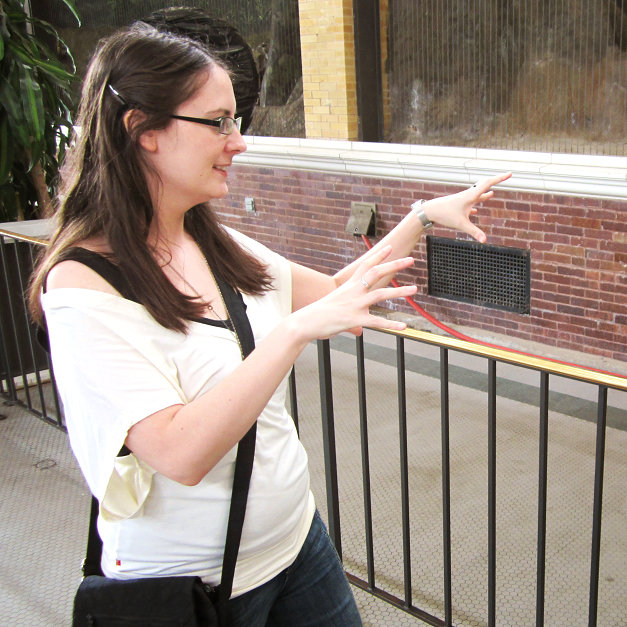Based on the excerpt from this Discworld book, what other items do you use regularly that would fit in this theory? (Boots and shoes are fair game!)
Text transcript for people who want it:
[The reason that the rich were so rich, Vimes reasoned, was because they managed to spend less money.
Take boots, for example. He earned thirty-eight dollars a month plus allowances. A really good pair of leather boots cost fifty dollars. But an affordable pair of boots, which were sort of OK for a season or two and then leaked like hell when the cardboard gave out, cost about ten dollars. Those were the kind of boots Vimes always bought, and wore until the soles were so thin that he could tell where he was in Ankh-Morpork on a foggy night by the feel of the cobbles.
But the thing was that good boots lasted for years and years. A man who could afford fifty dollars had a pair of boots that’d still be keeping his feet dry in ten years’ time, while the poor man who could only afford cheap boots would have spent a hundred dollars on boots in the same time and would still have wet feet.
This was Captain Samuel Vimes ‘Boots’ theory of socioeconomic unfairness.]
Bonus: suggest ways you can repair/restore your item/other people’s items.
I see Sir PTerry, I upvote.
And hey, just sliding this totally smoothly into the conversation, did you all know we have !discworld@lemmy.ml (Lemmy / Kbin)
*sidles out awkwardly*
Super neat!! Thanks for the link. :) If anyone likes the style of writing, go look at the Discworld community. These books are great.
I’m hoping this quote can drive some critical thinking about sustainability, and maybe some discussion about how to better what people CAN afford/already have.
My problem is I don’t know what products are expensive because they are good, and what products are a scam. No idea how to even search to find out either.
Oh easy, I just check for a thread on reddit where two guys are at each other’s throats arguing the merits of different crescent wrenches
…oh, wait.
It’s expensive to be poor
It really is. I have a few friends who are not doing very well, and it amazes me the shit they have to pay for.
Car repair. Towing and fixing a car with a ruined engine is ten times as much as doing regular maintenance. And it’s not just the dollar cost of oil changes and belts: When you are better off, you have the free time to run that errand to do those things.
Dental care, for almost the exact same reasons.
General healthcare has all of those factors PLUS if your general health goes bad you may not be able to work so now fixing it is expensive and you have no income.
Car
repair.Sorry, I usually don’t make these shallow comments. But cars are just another way to accumulate money for the rich few. Transportation is the boot, and we can’t afford good public transit and international railways.

This whole thread reminded me of this old viral tweet
This and Chocolate Rain, I guess that’s two times he’s made an impression on my life now
Wait! This is the same guy?
Yup!
Boots, shoes, clothes, technology, cars, houses, furniture.
Everything.
In a somewhat paradoxical fashion, it would be cheaper to buy and own many things over an extended period of time versus renting them. However, pooling resources to buy just one of something and have it be accessible to a community seems like the more ideal sustainable approach… But we also see perversions of the ‘sharing’ model with things like ride-sharing and AirBnB. Just something some of the comments (i.e. on laundry and tools) made me think about.
Thats what the concept ‘conscious spending’ tries to address and set up protocols to get out of the negative feedback cycle of having to constantly buy cheap shit only to have to replace it and double your cost.
https://www.iwillteachyoutoberich.com/conscious-spending-basics/
The link above has much more details on this if y’all are interested.
A key component of Vimes’ theory is that he buys cheap boots because he can’t afford the expensive ones. Conscientious spending assumes the person has a choice; it isn’t an option for Vimes, or for many people.
There are many things that it makes sense to simply buy the cheap version of: things that’ll be used infrequently, or which usefullness is unknown. Gadgets which a friend loves and recommends, but which end up being simply unused.
I haven’t read the book you recommend; maybe it says all this. I do think, though, that for all the evils of cheap consumer goods, they’ve put much in the hands of people who would not otherwise be able to afford it.
My mother always says: we are not so rich to afford cheap stuff.
For exactly this reason
Problem now is “luxury” brands, which is the same shit quality at a huge markup. Quality is often not even a consideration for producers these days.
@sunshine It’s very true. There are ways to break the cycle but being poor often means also not having the time to fix or pick up stuff. I have been living of a low income for years now. I think like 80% percent of the stuff I own has been free or second hand.
Clothes dryer, washing machine, dishwasher, oven, microwave, furniture, clothes etc. etc. Sometimes it’s tedious and frustrating.
But I also didn’t have to work full time or two jobs just to buy all that crap new.
It means I get to spend money on good shoes for me and the kids. Good mattresses. New clothes for the kids because social pressure dictates it. Food.
The rest I build, repair, trade etc. etc. If this capitalist society collapses I’m fucked, off course.Planned obsolescence is another problem to add to this. I’ve had coffee makers (thermal fuse won’t reset), TVs (logic board and LED backlight), garbage disposals (internal seals), garage door openers (capacitor), and fridges (ice maker) all fail 1-2 months after the warrenty in the past 5 years.
Want to get a serviceable unit with readily available parts? Well you can pay 10x the cost.
Cloths for towels. Paper towels are convenient, but we’ve got 15 reusable ones that we can just throw in the wash afterwards.
I prefer paper towels over cloth towels. We use both in our house. I can see the savings of using cloth towels but I just so do love paper towels.
In 2021 I rented a car and did Uber for about a year. At $316 a week, that car was costing me 1200 a month!
Eventually I lost the car as I couldnt afford to pay.
Now I’ve got a job, been building my credit, gonna buy a car instead. That car will be about $300/mo. And all because I’ve got the credit and cash to buy instead of rent.
Is public transportation not a thing where you live?
Can you imagine you order an Uber and the driver rolls up like “hey man, c’mon, I got you the day pass but the bus leaves in like 2 minutes”
This car will also be for Uber.
the same concept is true for many other items - ultimately, it comes down to “you get what you pay for”.
I had to get shoes last week, the ones I had previously had lasted 9 years and the rubber soles were beginning to crumble. they’re now relegated to yard shoes & won’t last another year. new shoes are 100% leather, with rubber soles, cost $90 & were on sale (normal price was $140). they’ll last at least another 9 years without any issues.
most of the things I buy, I always look for sales but I never buy the cheap/cheaply made products. cheap stuff might last a year & it’s just not worth it. expensive stuff is usually cheaper in the long term.
The trick, of course, is figuring out when this holds true versus when the expensive version is just relying on brand name to inflate the price.
In the UK you have to pay car tax which basically is a tax on vehicles which obstensively covers road maintenance.
If you pay monthly then you have to pay 12 units for one year.
However if you can afford to pay one lot all in one go then you only have to pay the equivalent of 10 units. Essentially you get two months for free.
Now presumably this is because it is easier to account for your budget if you get it all in one job lot right at the beginning of the year. So it is worth them giving you a economic incentive to do that. But loads of people cannot afford that so they end up paying more money.
Most people keep a car for what five ir six years? In that time the effectively pay an entire extra years worth of road tax if they pay monthly rather than yearly.
Boo.
I don’t live in the UK, would you be willing to give an example of what the yearly lump sum is vs the monthly fee? I’m genuinely curious!
It depends on vehicle emissions.
Bagels which put out more carbon dioxide get taxed more heavily. This has always been the case but it’s how it’s always been worked out as long as I’ve been driving. I’m not sure how it worked historically.
My car is a diesel. So it’s output is worse (greater) than a petrol car.
My yearly tax is, paying monthly, £180 per year. My yearly tax is, paying yearly, £170 per year.
Not much for my car, but then again it’s a boring ass people carrier with suspect electronics, because I’m 180,000 years old.













